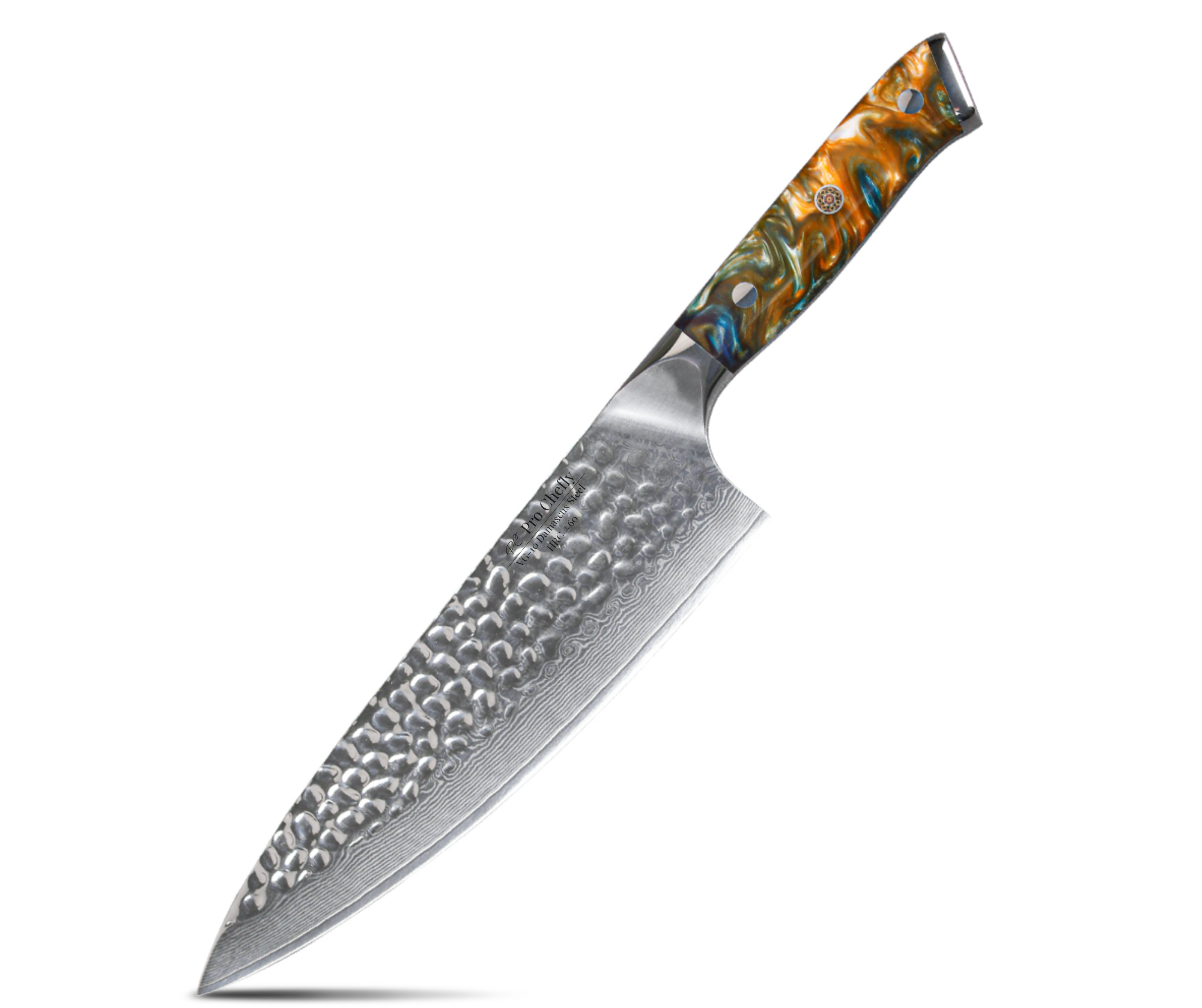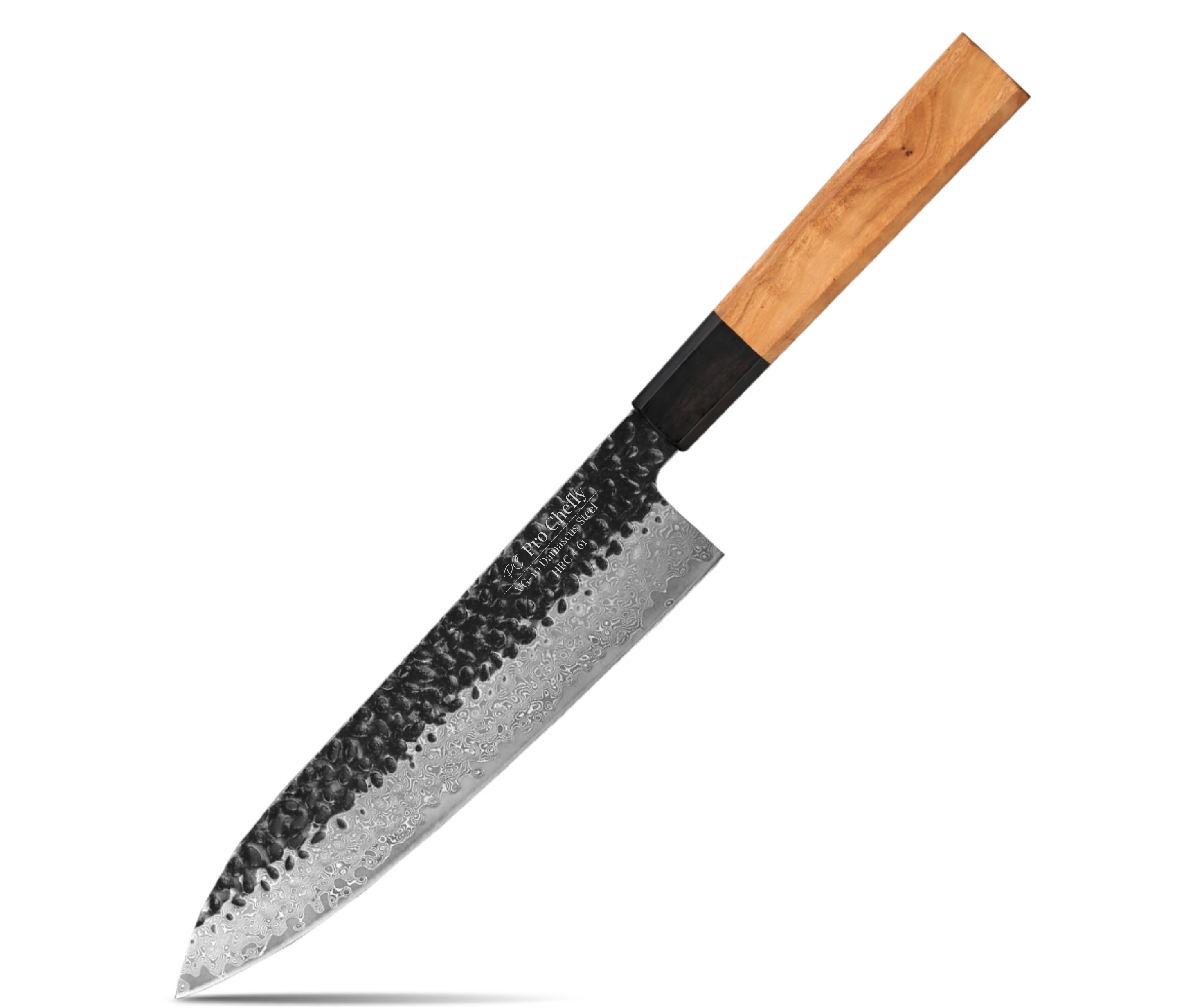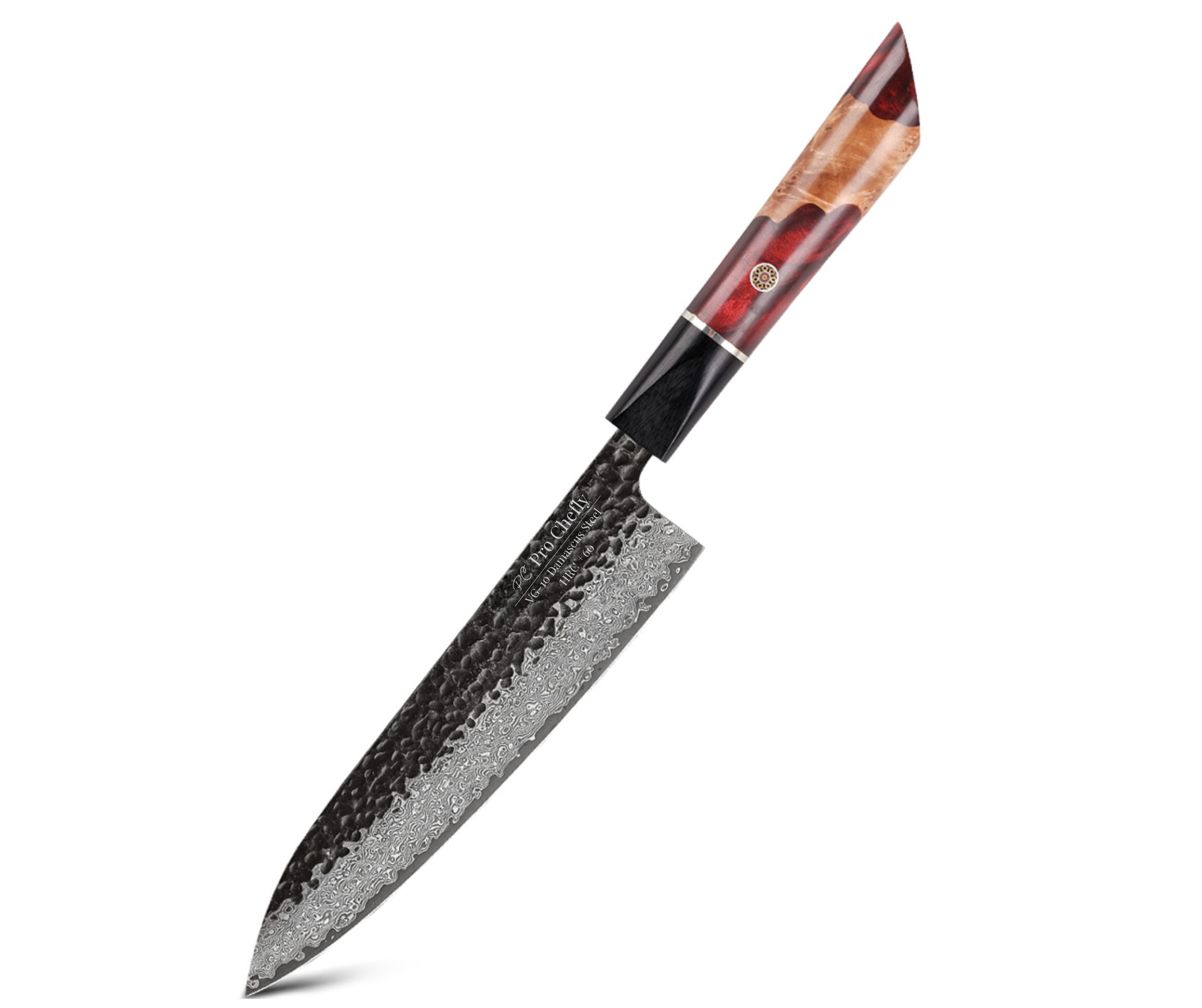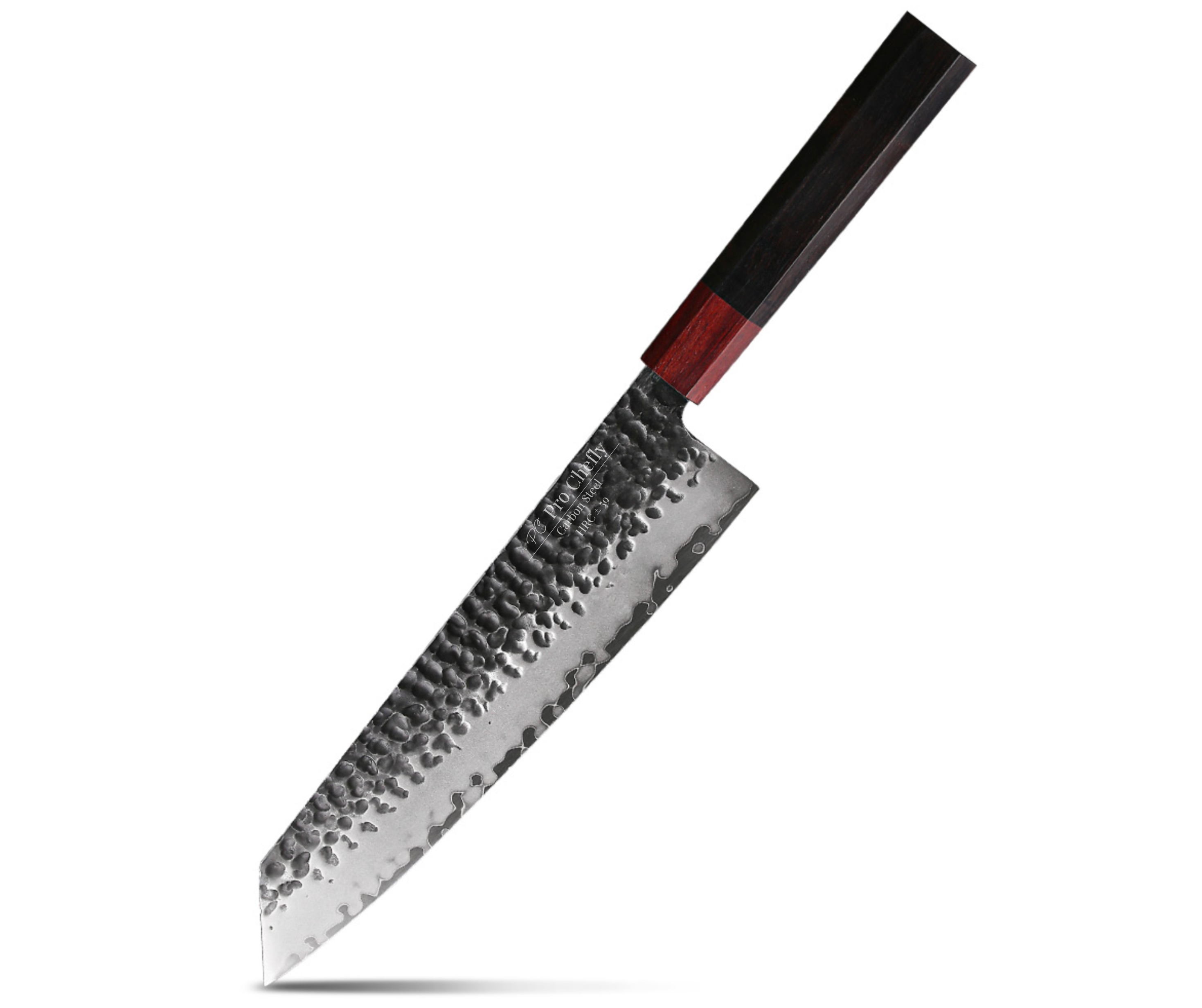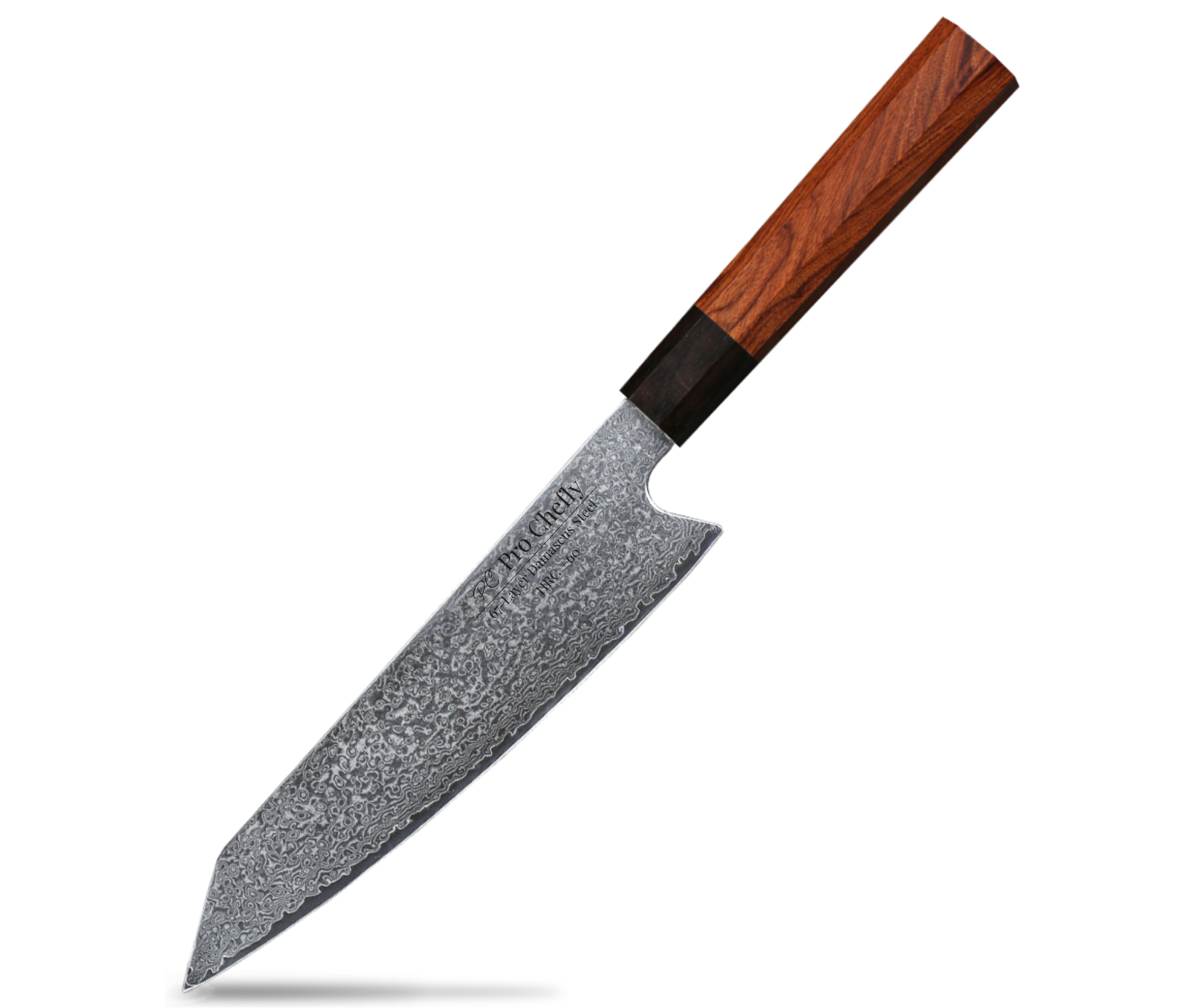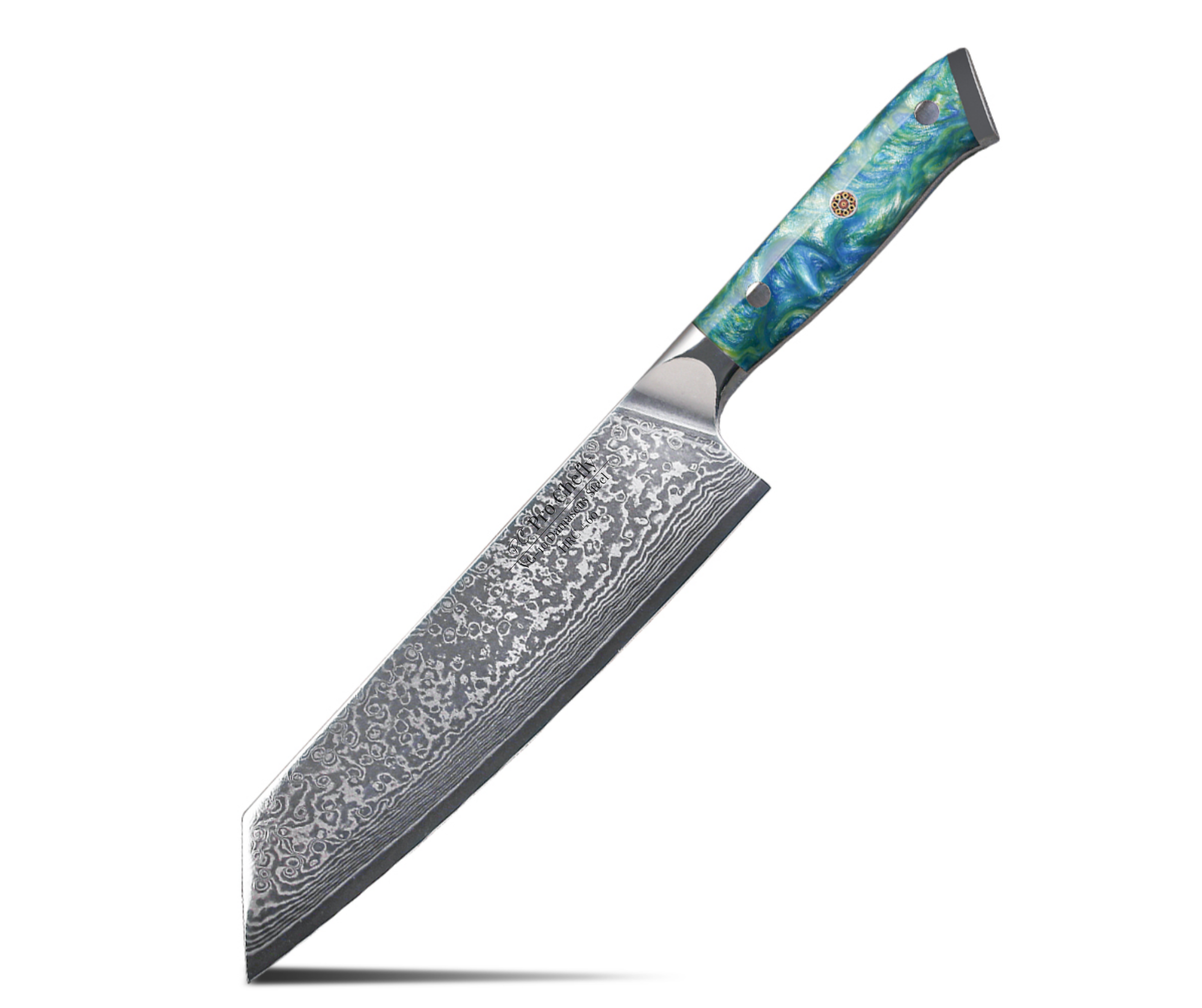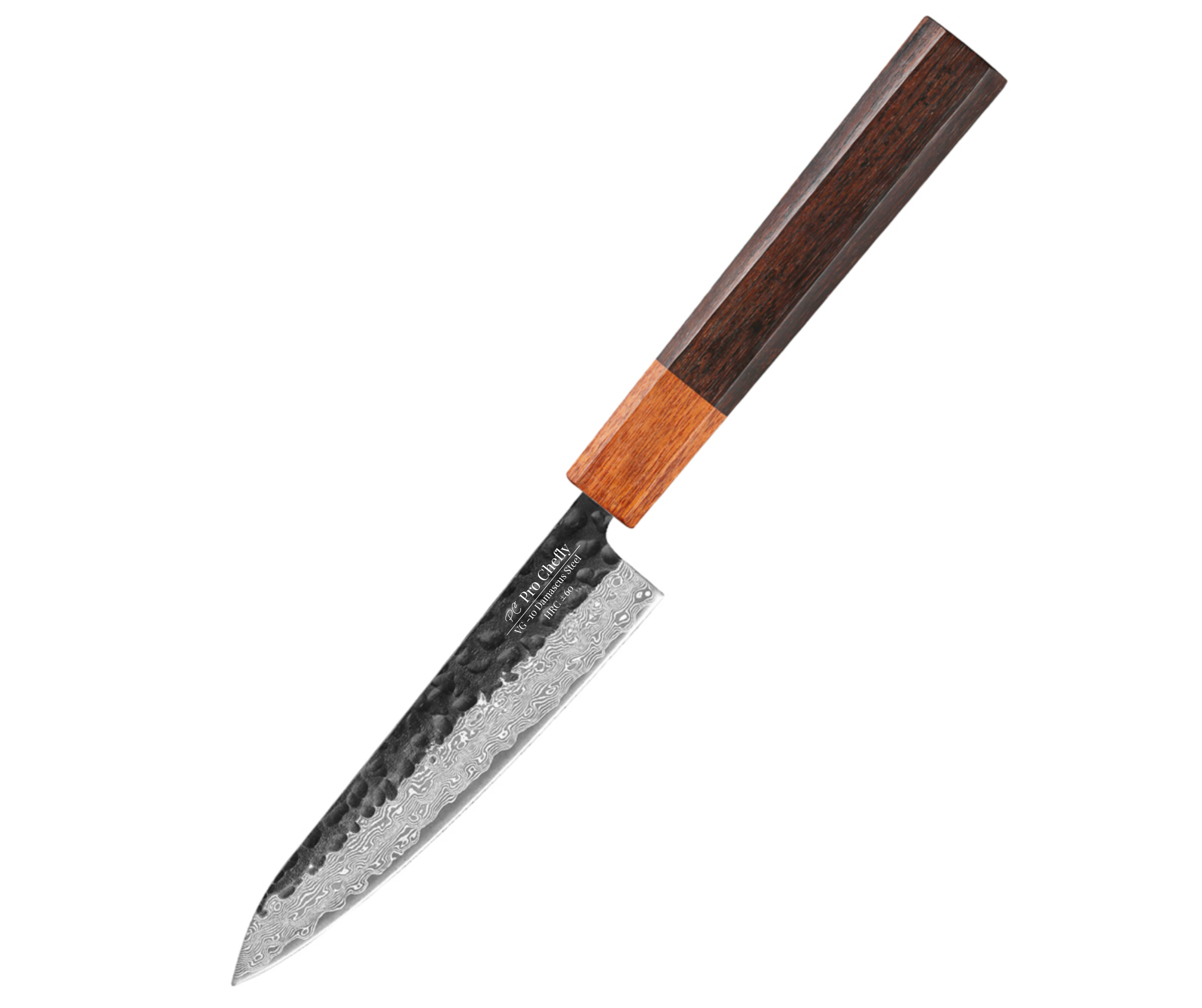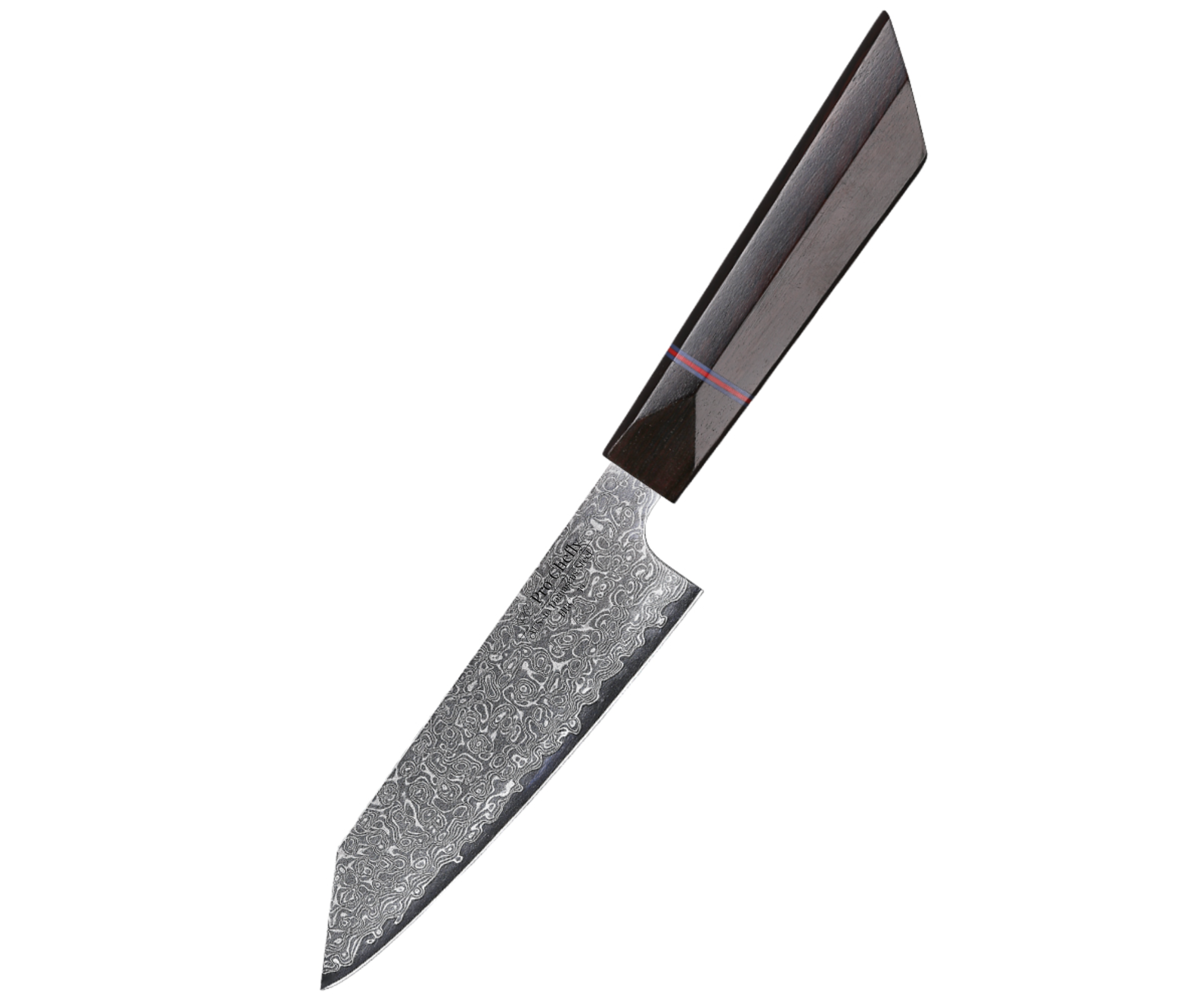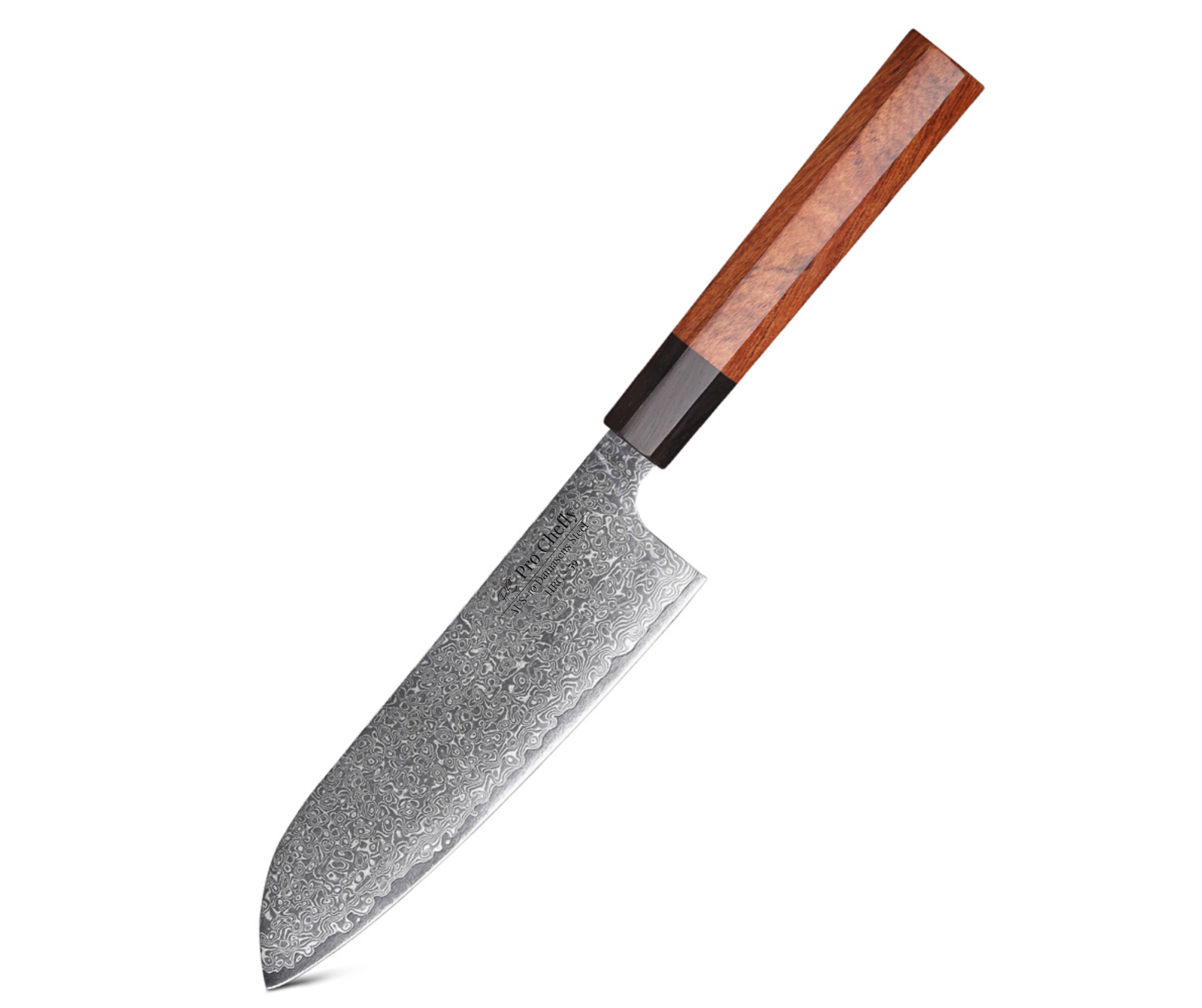Chef’s Overview
Dear Chefs, here’s a number you probably didn’t think you’d ever care about in the kitchen: the Rockwell Hardness Score. But trust me, it matters more than you think. This tiny number can tell you whether your blade will stay sharp through weeks of chopping—or roll over dull after a single Sunday roast. Today, we’re slicing into what Rockwell hardness means, why it shapes your knife’s personality, and how Pro Chefly knives balance strength with everyday performance.

Rockwell Hardness Explained: The Scale Behind the Steel
When you see a knife described with “HRC 60” or “Rockwell 59+,” that isn’t just marketing fluff—it’s science. The Rockwell Hardness Scale measures how resistant a steel is to indentation. In simple terms, it’s how well your blade holds up under pressure. Too soft? The knife won’t hold an edge. Too hard? It risks chipping. A perfect chef’s knife dances somewhere in the middle, giving you durability without brittleness. As we discussed in What is the Rockwell Hardness Scale for Kitchen Knives, this number is your best clue to how a knife will perform over time.
The Sweet Spot for Kitchen Knives
Most premium Japanese steels—like VG-10 and AUS-10—sit between HRC 59–61. That’s the golden zone: sharp enough to glide through sashimi, resilient enough for root vegetables. That’s why blades like our 7" VG-10 Damascus Santoku Knife or the 8" VG-10 Damascus Chef Knife are built to deliver edge retention without making you terrified of every accidental slip on the board.
Comparing Rockwell Hardness Across Knife Steels
Not all steels are created equal, and the Rockwell scale makes that clear.
Stainless Steel vs High-Carbon Steel
Stainless steel knives often fall around HRC 55–58. They’re easy to maintain but dull quickly, meaning you’ll spend more time sharpening. High-carbon knives, like those we highlighted in Western vs Japanese Chef Knives: Which is Better for You, can soar past HRC 62. They’ll hold an edge beautifully—but they’re brittle if not cared for properly.
Damascus Steel and the Rockwell Balance
Here’s where Damascus steals the show. As we shared in Is Damascus Steel Stronger Than Other Kitchen Knife Steels, the layering process creates a blade that balances hardness and flexibility. When paired with a VG-10 or AUS-10 core, you’re looking at the best of both worlds: razor-sharp performance with resilience built in.
Why Rockwell Hardness Matters in Everyday Cooking
So why should you, Dear Chefs, care about a number stamped in a spec sheet? Because it directly affects how you cook.
Edge Retention in Real Kitchens
A 60 HRC Damascus blade like our 8.5" VG-10 Damascus Kiritsuke Knife won’t roll dull halfway through chopping onions. It stays sharp meal after meal, turning prep into pleasure instead of frustration.
Durability Without the Drama
Too many chefs settle for knives that chip when pressed against bone or a hard squash. By choosing knives engineered at the right hardness, you protect your investment and your time. Think of it as picking a wine glass: too fragile, it shatters; too thick, it feels clunky. The sweet spot is where art and practicality meet.
As we explained in How VG-10 Steel Balances Edge Retention and Durability, the beauty of Pro Chefly blades is that you don’t have to choose between sharpness and toughness—we’ve already done the balancing act for you.
Wrapping Up: Rockwell Numbers That Count
Dear Chefs, numbers don’t usually tell the full story in the kitchen—after all, flavor can’t be measured on a scale. But when it comes to knives, the Rockwell Hardness Score is the heartbeat behind the blade. It tells you whether your edge will stay true, whether your cuts will stay clean, and whether your knife becomes a lifelong companion instead of a throwaway.
So next time you pick up a knife, don’t just admire the pattern or handle—check the Rockwell score. It’s the unsung hero behind every perfect slice. And with Pro Chefly, you can trust that each blade is forged at the sweet spot where durability meets precision.
Knife Collections
Shop the latest in Pro Chefly Damascus Knives
Chef's Notes
Stay up to date with the latest kitchen stories and recipes

- December 05, 2025
Dear Chefs, the holidays deserve a dish that feels slow, soulful, and unforgettable — and few things capture that spirit...

- November 30, 2025
Dear Chefs, there is something unmistakably comforting about bread pudding in November — the way the custard soaks into the...

- November 25, 2025
Dear Chefs, there is something special about roasted carrots in the fall — the way they caramelize, the way their...

- November 20, 2025
Dear Chefs, there is something magical about fall stuffing, especially when pumpkin and sage join the party. The aroma alone...

- November 15, 2025
Dear Chefs, November has a rhythm of its own — a slower pace, a softer light, and a craving for...

- October 31, 2025
Dear Chefs, fall baking is a ritual — the scent of cinnamon in the air, pecans roasting low and slow,...
- Choosing a selection results in a full page refresh.
- Opens in a new window.
